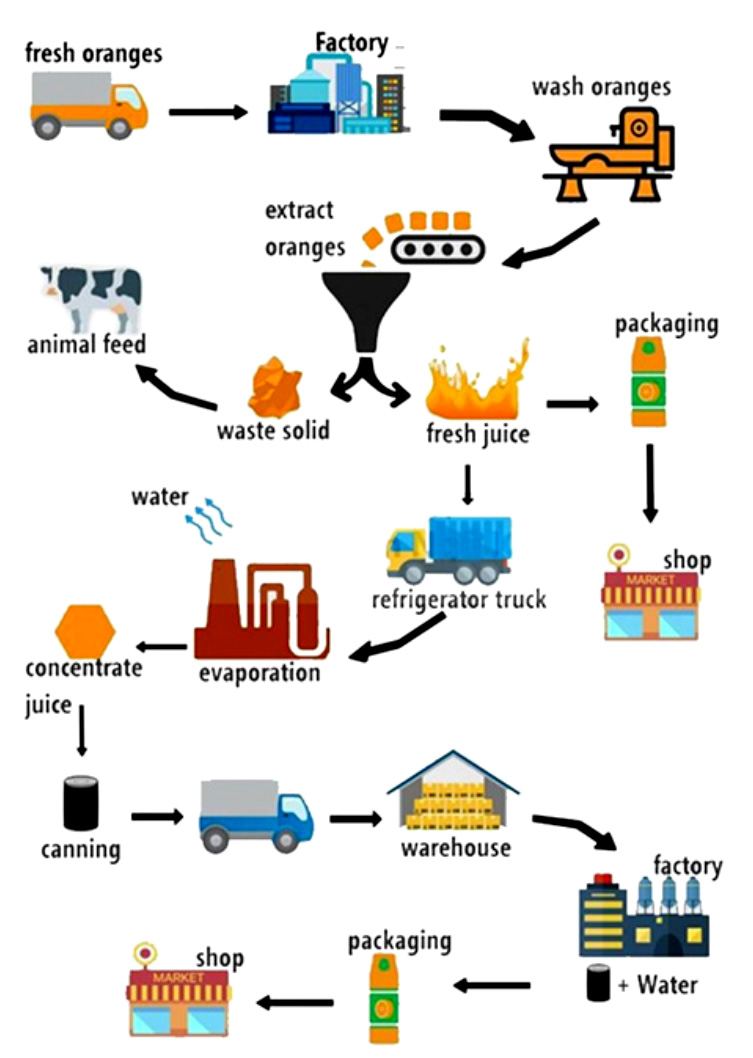The diagram illustrates the process of producing of orange juice.
There are various stages in the process of making orange juice, beginning with the collection of fresh oranges and ending with the distribution of packaged juice to supermarkets.
Firstly, oranges are picked, loaded onto trucks, and delivered to a processing plant where they are thoroughly washed by a machine. Following this, the juice is extracted from the oranges by a squeezing machine, and the solid waste, including orange peels and seeds, is collected and used to feed animals. The squeezed juice can then either be packaged and sent to the supermarket, or transferred to another factory to undergo an evaporation process.
During the evaporation process, the fresh orange juice is processed by an evaporator machine where the water is removed. The concentrated juice is then canned and transported to a warehouse before being combined with water again. After that, it is packaged and distributed to supermarkets, ready to be purchased.
(160 words)

